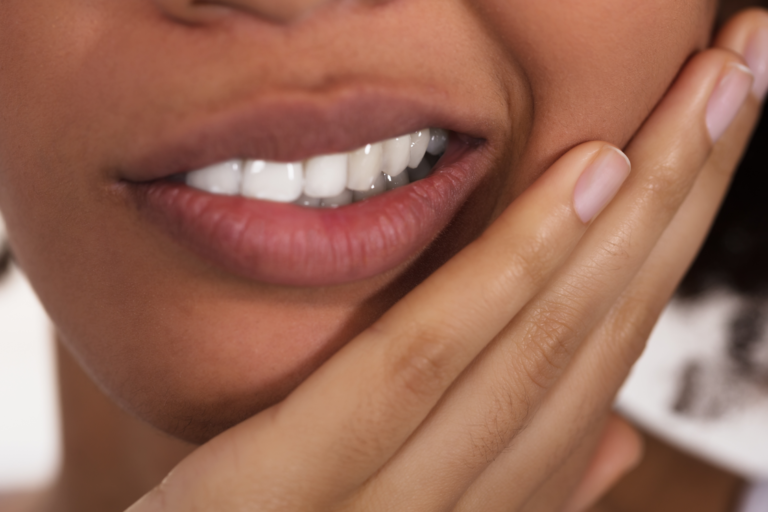DO YOU HAVE SENSITIVE TEETH?

Many patients mention sensitive teeth as one of their main concerns. This sensitivity is usually experienced when drinking or eating something cold or sweet. If you are experiencing any dental discomfort, we always recommend having an exam with the dentist to rule out any other underlying condition such as gum disease, decay or a fracture in the tooth.
Generalized sensitivity in otherwise healthy teeth is most often felt in the front teeth or near the gumline of the back teeth. Simple anatomy can explain these sensations. The structure of the teeth contains an array of microscopic tunnels known as tubules. These tunnels lead deep into the tooth and contain fluid and part of the nerve found within the tooth. Any extreme change in temperature can cause this fluid to move which in turn sets off the nerve causing the sensitivity.
Any areas of gum recession or enamel wear are especially vulnerable. Recession is often a normal part of the aging process but several factors put the patient at risk of developing it. If you have receding gums, the presence of gum disease should first be ruled out. Another very common cause is brushing too hard. We recommend brushing in gentle circular motions using a brush with soft bristles. Patients who use an electric toothbrush need to be careful to hold the brush at an angle toward the gumline as opposed to a more direct perpendicular application. Your hygienist can demonstrate this technique. Other common causes of recession are clenching and grinding or having previously had braces. An occlusal guard may be recommended for any patient who clenches and grinds their teeth.
Certain toothpastes and whitening products can also make sensitivity worse. These toothpastes include those with baking soda or charcoal among others. We recommend switching to an over-the-counter or prescription toothpaste specifically made for sensitivity. The brand Sensodyne in particular works well with maximum results after two weeks of brushing twice a day. Sendodyne technology actually seals the previously mentioned microscopic tunnels within the tooth. Prevident, the prescription strength toothpaste, can also be used alone or in conjunction with Sensodyne for extra relief. Any type of whitening product, especially professional strength, can either cause sensitivity or make it worse. If you experience sensitivity when whitening your teeth, we recommend using the product less often and applying less of it for a shorter amount of time. The desensitizing toothpastes mentioned above can also be used while whitening to help avoid or relieve this sensitivity.
Ask your dentist or hygienist if you are experiencing bothersome sensitivity. We will evaluate you for any underlying cause and make recommendations for relief and any necessary treatment. Sometimes we can even apply a desensitizer in the office that provides quick relief up to several months.

